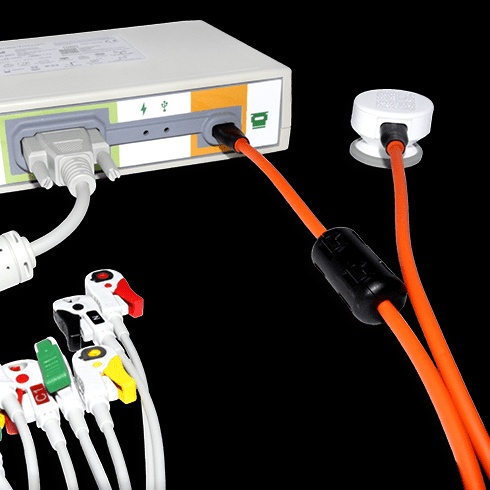Want to see the difference? Download the “Cardio-HART vs. ECG” brochure to learn how our new technology provides a clearer picture of your heart health.
LONDON, UK – 24 June 2024 – MIAl Healthcare is proud to announce a new collaboration with CardioPhoenix to introduce the groundbreaking Cardio-HART™ cardiac diagnostic system. This innovative technology is set to revolutionise heart health assessments by enabling early and comprehensive detection of cardiovascular diseases (CVD) directly within our primary care practice.
Cardiovascular diseases are a leading global health issue, yet early detection in primary care has been hampered by the limitations of traditional tools. Standard ECGs detect less than 44% of common heart problems , while access to more effective echocardiography involves referral wait times that can average six months.
The Cardio-HART™ system solves this by combining an AI-reported ECG, an eStethoscope, and an echocardiogram into a single, non-invasive test. For our patients, this means immediate access to advanced cardiac diagnostics without the long wait.
Key advantages of the Cardio-HART™ system now at MIAl Healthcare:
- Early and Broad Detection: It can identify the early onset of heart disease and covers approximately 93% of the most common heart conditions, including heart failure and valve disease.
- Comprehensive Reporting: The system provides detailed “HART Findings” that are disease-equivalent to an echocardiogram, assessing 14 significant cardiac abnormalities that a standard ECG cannot.
- Enhanced Accuracy: AI-powered analysis significantly increases diagnostic sensitivity and specificity. Clinical studies show that GPs using CHART reduced false-negative referral decisions by 15.8% and increased their positive diagnostic rate from 8.5% to 26.7%.
- Immediate and Efficient: The test is quick, non-invasive, and provides immediate results in about 15 minutes, allowing our clinicians to make confident decisions about your care right away.
By adopting the Cardio-HART™ system, MIAl Healthcare is making a definitive move to combat cardiovascular disease through superior diagnostics. This technology provides our clinicians with the detailed evidence needed to either confidently rule out heart disease—with a 99% Negative Predictive Value (NPV) —or to initiate the right treatment pathway without delay.








